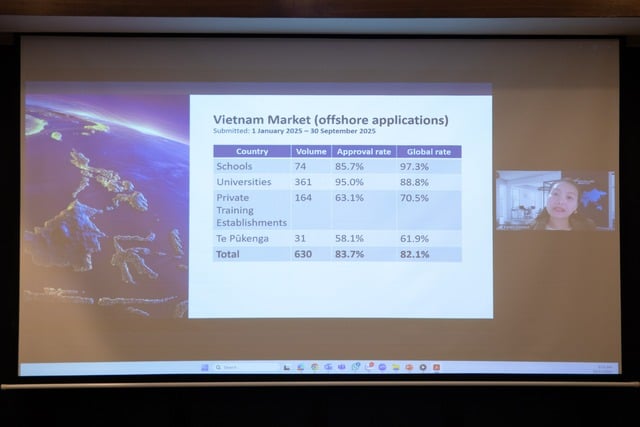
Ms. Karen Sionzon, Community Engagement Manager of Immigration New Zealand, shared online from New Zealand at the workshop on October 11.
PHOTO: NGOC LONG
To avoid being denied a student visa
Speaking at the New Zealand Education Fair recently held in Ho Chi Minh City, Ms. Karen Sionzon, INZ's Community Engagement Manager, informed that in the first 9 months of 2025, this agency issued a total of 630 student visas to Vietnamese people. The approval rate was 83.7%, 1.6% higher than the world average, according to statistics from INZ.
Of which, the largest number of Vietnamese studying abroad is in the university group with 361 visas granted, followed by private training institutions (164), high schools (74), and technical and engineering academies (31). Compared to 2024, this trend is somewhat different when the number of Vietnamese studying abroad in high schools at that time is the second largest, just behind the university group.
In terms of the approval rate for New Zealand student visas for applicants from Vietnam, those studying at universities also have the highest rate, reaching 95% and 6.2% higher than the world average . The general group also has a high visa approval rate at 85.7%, 11.6% lower than the global average.
The remaining two groups, private training institutions and technical and technological institutes, are also lower than the world average, with student visa approval rates of 63.1% (compared to 70.5%) and 58.1% (compared to 61.9%) respectively. This means that on average, out of 10 Vietnamese applicants applying for visas to study at these two groups of schools in New Zealand, 3-4 are rejected.
| Educational institution of student visa applicant | Approval rate in Vietnam | Global rate |
|---|---|---|
| High school | 85.7% | 97.3% |
| University | 95% | 88.8% |
| Private training facilities | 63.1% | 70.5% |
| Institute of Technology and Engineering | 58.1% | 61.9% |
| Average level | 83.7% | 82.1% |
Ms. Sionzon noted that the above data does not include student visa applications on INZ's new platform called ADEPT. This platform was officially launched in 2021, applied to a number of visa types such as tourism , work, settlement, and by mid-August integrated most types of student visas. By mid-September, New Zealand also stopped accepting paper student visa applications, INZ said in a statement.
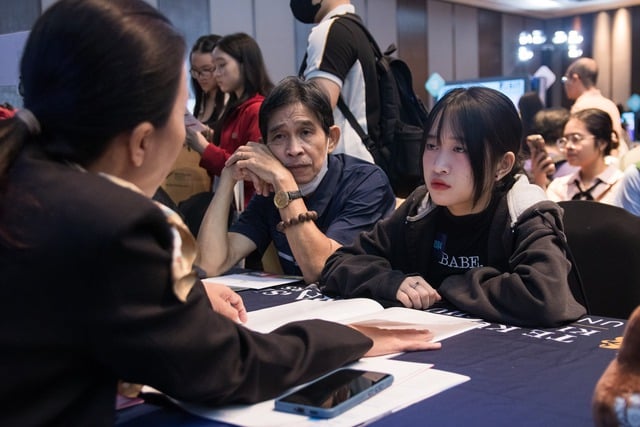
Parents and students listen to advice from New Zealand University representatives
PHOTO: NGOC LONG
Ms. Sionzon also shared that if Vietnamese students are not confident in submitting their visa application from start to finish, they can seek outside services and INZ does not prohibit this. However, in that case, applicants need to clearly declare in their application. "Otherwise, your application may be rejected," Ms. Sionzon warned, adding that licensed immigration experts and some Vietnamese study abroad companies have the right to support and advise students.
New Zealand student visa application process
According to Ms. Karen Sionzon, the applicant's student visa application requires many papers and documents, such as personal information (portrait photo, passport copy, health certificate, criminal record...), plan upon arrival in New Zealand (presenting study goals, plans during the study period, plans after completing the study program...), admission letter, finances and health insurance.
"Among these, the financial requirement is a very important factor. You must prove that you have enough money not only to pay tuition fees, but also to pay for living expenses throughout the study period as well as to deal with unexpected situations that may arise," said Ms. Sionzon. In addition, she added that when proving finances, the three points applicants need to remember are that the source of money "actually exists, is of legal origin and can be used while in New Zealand".
The financial level required to prove will vary depending on the applicant's study program, according to Ms. Sionzon. For undergraduate, postgraduate and English courses, this will be 20,000 NZD/year (VND 301 million) if the training program lasts 36 weeks or more, or 1,667 NZD/month (VND 25.1 million) if the program is shorter than 36 weeks. For high school, these two levels will be 17,000 NZD/year (VND 256 million) or 1,417 NZD/month (VND 21.3 million), respectively.
INZ representatives also emphasized that applicants should only submit complete documents for proof, do not send too many unnecessary documents. "There have been cases where applicants submitted the entire transaction history of all bank accounts, totaling more than 1,000 pages. This took us a lot of time and slowed down the review process," Ms. Sionzon noted.
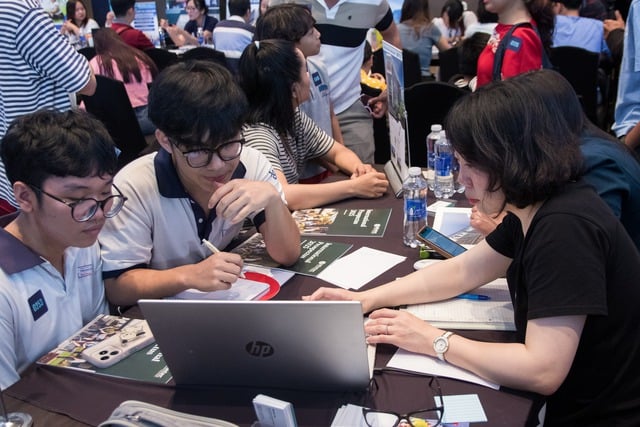
A representative of a New Zealand engineering and technology institute introduces training programs to Vietnamese students.
PHOTO: NGOC LONG
According to Ms. Sionzon, applicants are not required to pay tuition fees to the school before their student visa application is considered. However, after the application is approved in principle, you must pay the tuition fees to the school and send a copy of the receipt to INZ within 5-14 days to officially receive the visa.
Ms. Sionzon also noted that during peak periods (October to March and June to August), applicants should submit their student visa applications at least three months before their intended departure date so that consular officers can process them promptly.
According to statistics from Education New Zealand (ENZ), the total number of Vietnamese international students in New Zealand in 2024 is 1,935 people, an increase of 12% compared to the previous year but only about 60% compared to the record level in 2019 (3,040 people). Of which, Vietnamese people are most concentrated in universities (1,170), followed by high schools (370). In particular, the number of Vietnamese people in New Zealand universities has exceeded the pre-pandemic level and has tended to increase steadily from 2021 to present.
Source: https://thanhnien.vn/new-zealand-tu-choi-hon-1-3-don-xin-visa-du-hoc-cua-nguoi-viet-o-hai-nhom-185251013195013079.htm












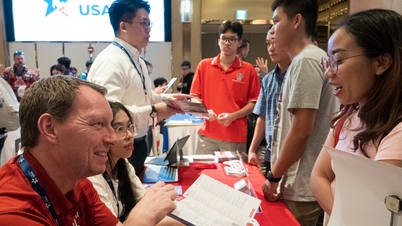

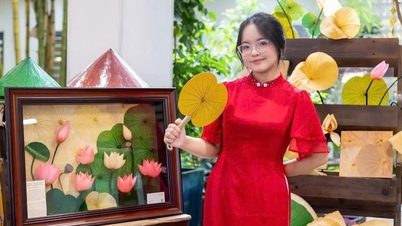
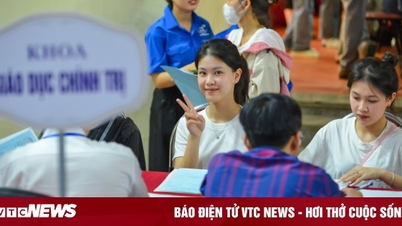
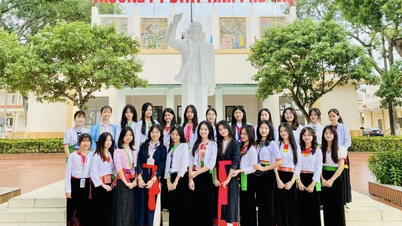

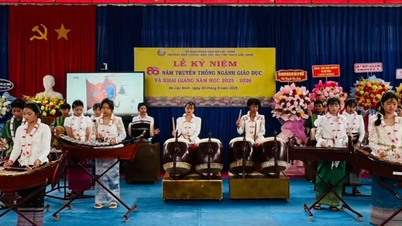












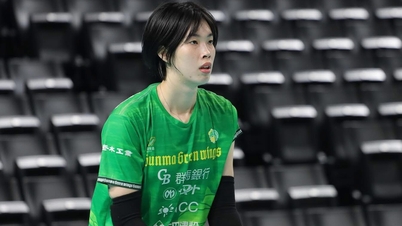





















































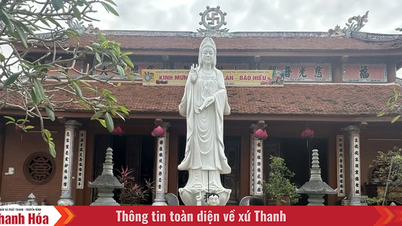























Comment (0)